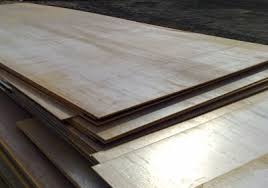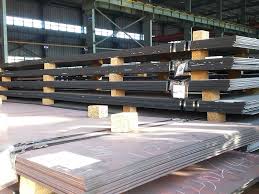Carbon Plate
Reliable Pipes and Tubes Limited are a stockist for Carbon Plates.
| A36 | A516 |
| A572 | Free Machining |
| A588 | C1020/C1045 |
ASTM A36
This specification covers carbon Steel Shapes, Plates and bars of structural quality for use in riveted, bolted or welded construction of bridges and buildings and for general use.
ASTM A516
Standard specification for Pressure Vessel Plates, Carbon Steel, for Moderate and Lower Tempeature Service
This specification covers carbon steel plates intended primarily for use in welded pressure vessels where improved notch toughness is important. It allows for four different strength levels. The most common is Grade 70.
This grade must be killed and made to a fine grain practice. Plates over 1-1/2” thick must be normalized. Additionally, when impact (notch toughness) tests are required on plates up to 1-1/2” thick, the plates must be normalized.
ASTM A572
Standard specification for High-Strength Low-Allow Columbium-Vanadium Steel
This specification covers structural shapes, bars, sheet piling, and plate to be used for construction of bridges, buildings, and other structures.
For certain applications, notch toughness may be an important requirement and should be addressed at the time the order is placed.
This grade has higher tensile and yield strengths resulting from the addition of small amounts of one or more alloying elements. The choice of alloying element, whether columbium, vanadium, nitrogen, or a combination of these is at the option of the producer unless otherwise specified.
ASTM A588
Standard specification for High-Strength Low-Allow Structural Steel with 50 ksi Minimum Yield Point
This specification covers high-strength low-alloy structural steel shapes, plates, and bars to be used for construction of bridges, buildings, and other structures.
Atmospheric corrosion resistance of this grade in most environments is substantially better than that of ordinary carbon structural steels. When properly exposed to the atmosphere, this steel can be used unpainted for many applications.
This grade must be made to a fine grain practice.
Free Machining Steels
Proprietary specifications for Steel Plate with Controlled Sulfur Additions
These grades comprise a group of steels that have been made with increase sulfur levels to provide enhanced machinability and increased tool life for applications with extensive machining requirements. The additional sulfur results in higher level of manganese sulfide inclusions, which provide a lubricating effect and contribute to chip breakage. Surface finish and dimensional stability may also be improved.
General requirements for delivery
Not covered by any standard specification, but it can be expected that the material will conform to the requirements of ASTM A 6.
C1020 / C1045 – ASTM A 830
Standard specification for Carbon steel Plate Furnished to Chemical Composition Requirements
ASTM A 830 was first issued in 1984; prior to that the C1020 and C1045 chemistries were defined by AISI specifications.
This specification covers structural quality carbon steel plates furnished to chemical composition requirements only. There are no tensile requirements or other mechanical property requirements for this specification.
The ASTM A 830 specification covers 48 standard chemistries. Oliver Steel offers two of these chemistry-only plate grades. C1020 offers better machinability than the normal low carbon commercial alternative of A36. C1045 provides higher strength and hardness levels and is readily flame hardened. Both have a much lower cost than free-machining grades of similar carbon levels.
General requirements for delivery
Material shall conform to the requirements of ASTM A 6.


